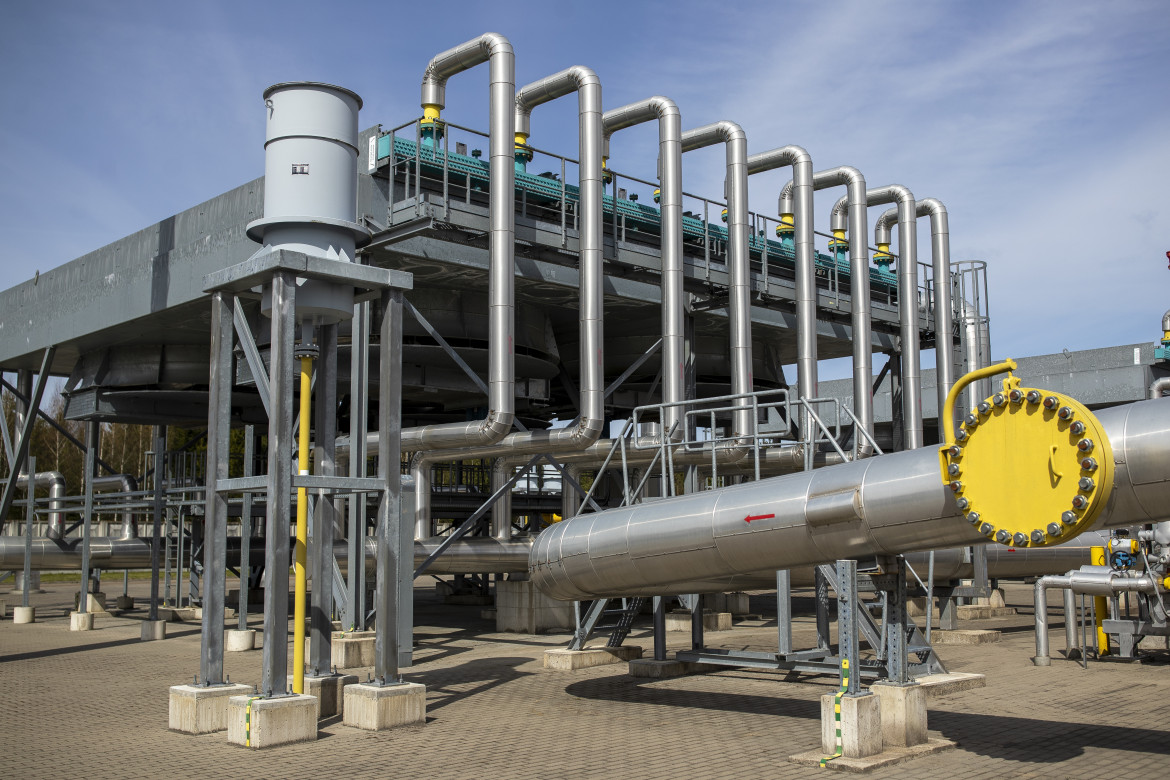Analysis
Brussels’ ambiguous cocktail: Nuclear power, fossil fuels and solar panels
RePowerEu is a vague plan, which envisages a future reduction in consumption, but seeks to respond to the Russian emergency with funding for new dirty energy projects, putting global warming on the back burner.

The goal is to end dependence on Russian fossil fuels “as soon as possible,” and to avoid, in the short term, possible blackmail by Moscow, as has already happened to Poland and Bulgaria (on gas) and Finland (on electricity).
On Wednesday, the Commission – which is preparing to suspend the Stability Pact for another year – presented the RePowerEu plan, setting out investments of nearly €300 billion over the next five years, which tries to steer a course between two necessities, the energy emergency and the climate emergency. However, environmentalists are protesting that its response to the former means jeopardizing the latter.
The EU still depends on Russian imports for 26% of its gas consumption (down from 40%) and 28% of its oil, and pays Moscow about a billion euros every month, which Putin needs to finance his war against Ukraine. Commission President Ursula von der Leyen believes the EU must end this dependence “long before 2030.”
That’s why she is pushing ahead with the plan: in the short term, it means diversification of hydrocarbon imports, pushing nuclear power generation to the maximum, and even reopening coal mines if needed. In the medium and long term, there will be fundamental adjustments: reducing consumption and increasing the share of renewables. RePowerEu is an ambiguous plan, which envisages – without going into any specifics – a future reduction in consumption, but seeks to respond to the emergency in the immediate term, with funding for new infrastructure, regasifiers and pipelines, putting the fight against global warming on the back burner.
Friends of the Earth has denounced that some 50 new fossil energy infrastructure projects are planned: that is, one “dirty” dependency is being replaced with another “dirty” one.
The plan envisages a sharp rise in LNG imports from the US, Norway, Algeria, Egypt, Qatar and other Gulf countries. But prices are rising, so among the emergency measures, the Commission temporarily envisages the possibility of price controls (each country will choose the mode of implementation, as energy policies will remain national): in recent months, the largest countries, Germany, France, Italy, Spain, have already spent between €20 and €30 billion each to blunt the rise in prices and avoid social crises breaking out. Brussels is proposing group purchases to get better prices, but there is no agreement on this, as Germany is holding back for the moment.
Current climate law in the EU calls for a 55% reduction in CO2 emissions by 2030 and achieving carbon neutrality by 2050. In the RePowerEu plan, renewables are supposed to grow to 45% by 2030 (the previous target was 40%, while right now they are at just 22%). The Commission suggests making solar panels mandatory for all new construction from 2030 and from 2026 for public and commercial buildings with a floor surface of more than 250 square meters. There is expected to be a “special regime” that would simplify bureaucracy. Brussels is also pushing for investments in the manufacture of solar panels, which are currently being imported from China on a massive scale.
On the matter of cutting down on energy consumption, RePowerEu is vague: it envisages an even sharper drop than before, from 20% to 24% by 2030, but gives little guidance on the way to achieve it and the target is not binding.
There is still arm wrestling among the EU over whether the “taxonomy” will include gas and nuclear as transitional sources of energy. On nuclear power, there is the negative example of France: today, out of its 56 reactors, 29 are shut down for maintenance, in view of the “40-year check-up” for possible corrosion, with a view to extending their life – which will come at a safety risk. Nuclear power production in the country is at the lowest level in recent history (in 2005, 78% of electricity in France was produced by nuclear power, while today it stands at 67%; the goal is to get it down to 50% by 2035, but while building more power plants at the same time).
Meanwhile, the EU is unable to agree on a Russian oil embargo, after deciding to halt coal imports from Russia by mid-August. Hungary is opposed, and decisions on the “sixth package” of sanctions have been postponed to the European Council later this month. Budapest is demanding money to lift its veto, to the tune of €15-18 billion, an enormous amount to “modernize” the country’s energy system. There is also tension over Moscow’s imposed requirement to pay in rubles for gas imports. ENI, in particular, is in the crosshairs, as Brussels sees complying with this requirement as “circumventing” the sanctions.
Originally published at https://ilmanifesto.it/nucleare-fossili-e-pannelli-solari-il-cocktail-ambiguo-di-bruxelles on 2022-05-19
